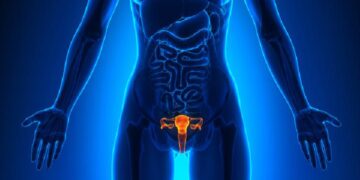
One researcher, Sanjay Patel, said, “There are at least 20 studies that show that if you sleep less, you gain more weight.” In a survey that spanned 16 years and involved 70,000 people, Patel and his colleagues found that people who slept less than five hours a day were 30 percent more overweight than those who slept normally.
Many experts believe that lack of sleep is one of the major reasons why modern people find it difficult to lose weight. In modern cities in particular, most women get only 6 1/2 hours of sleep, far less than the 7 1/2 hours needed to maintain good health. What is the intrinsic link between sleep and weight? Scientists have found that sleep suppresses the hormones that govern appetite, cravings and fat.
Feeling tired may be overeating
Ever realize that whenever you’re tired, you’re likely to overeat? Here’s the proof: Researchers at the University of Chicago had one group of participants sleep five and a half hours a day and another group sleep eight and a half hours a day, and measured their respective snack intake the next day. When they were tired, they each consumed an average of 221 calories, which would be converted into about a pound of fat after 2 weeks. “When these women slept less, their ‘indulgence’ hormones increased rapidly, and it made people eat more.” Breus, author of the Beauty Sleep article, says, “Their production of Leptin, also known as the ‘stop’ hormone, which is a hormone that makes you suppress your appetite when you’re full, decreases.” The reason you crave not only more food, but more junk food when sleep is forcibly deprived is that your body craves more easily broken down sugar enzymes, and you crave more chocolate, sweet cookies and candy.

Sleep more and grow less
Even though the numbers on the scale did not change significantly, the volunteers who participated in the experiment noticed a change. By the third week of the experiment, one volunteer found that she could easily fit into a pair of pants that used to look tight. On the day the experiment reached two months, another volunteer said, “My belly shrunk and the fat on the sides of my waist was reduced.” By the end of the tenth week, her waist, hips and breasts had shrunk by almost 12 centimeters, and Breus explains, “During deep sleep, the brain quietly secretes large amounts of growth hormones, which direct the body to convert fat into energy. If you reduce the time of deep sleep and at the same time hoard a lot of calories that can be converted into fat, the secretion of hormones can’t keep up with the accumulation of calories, causing your body to automatically transfer these fats to your hips, thighs and stomach, and that’s how obesity comes about.”
And you know, they don’t need to do anything hard except change their sleep habits. Eating as much as they used to, exercising didn’t increase, and even decreased, because more time was spent on sleep. In addition, almost all the women who participated in the experiment claimed that they were in better spirits, despite the doctor’s advice not to deliberately increase the amount of exercise, although some volunteers increased the amount of exercise: “I often increase the amount of exercise, the reason is that I am now in better spirits than in the past! I used to just curl up on the couch and eat and drink and not go anywhere; now I’d rather go out and do exercise, which is a huge change from my old lifestyle.” This does not surprise BREUS, “The desire to exercise, a lot of times, depends on how much sleep you get.”





































